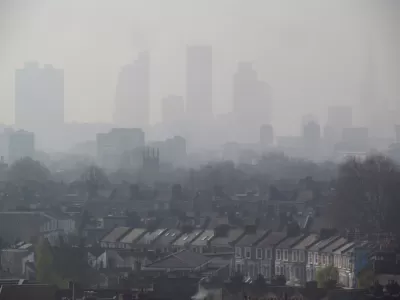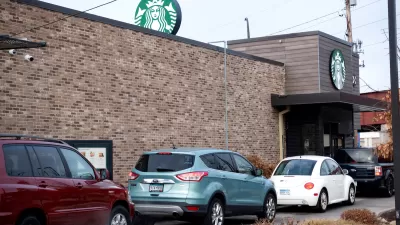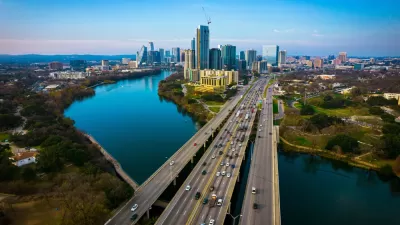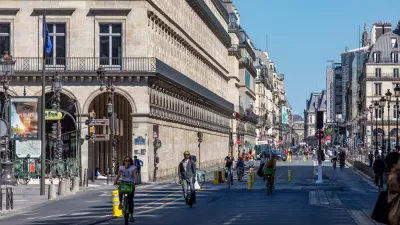The Globe and Mail editorial board points out the obvious hypocrisies of the global response to an aviation tragedy relative to the ongoing tragedies that occur every day as a result of the world's reliance on automobiles.

If you're afraid of flying, you've probably reassured yourself on several occasions that the drive to the airport was far more dangerous than the flight. But, still:
There’s something particularly horrifying about a plane crash. The sudden death of a large number of helpless people, travelling by what is normally the world’s safest mode of commercial transport, inspires more public empathy and recrimination than your average tragedy.
The editorial board of the Globe and Mail makes it clear that the response to the crash of an Ethiopia Airlines flight earlier this month was warranted, but uses that acknowledgement to build toward a larger point. "If only our calculus was always so clear," according to the hinge in this polemic.
The editorial doesn't then mention with the number of people who die in automobile accidents every day to make this case. Instead, it's the 4.2 million people who die every year of air pollution who headline this editorial.
Yet even today, countries that have swung into action around airline safety are doing away with common-sense pollution rules that would save some of those lives.
U.S. President Donald Trump, for example, surprised some when he belatedly grounded the 737 Max line in the days after the Ethiopian Airlines crash, despite personal appeals from Boeing’s CEO. Well, even a broken clock is right twice a day.
The rest of the time, Mr. Trump does things like scrapping clean-energy regulations and allowing coal-fired power plants to create more smog, a sop to industry that’s expected to cause as many as 1,400 premature deaths a year by 2030. That’s about seven Max 8s.
The editorial goes on to mention pedestrian fatalities as well. "These deaths are a choice. They are not inevitable; they are a function of everything from urban planning to speed limits." In Toronto, however, the editorial has a glimpse of hope to report that maybe the city's political leadership is waking up to the horrors of the automobile.
FULL STORY: Globe editorial: Why humans ignore the slow-motion catastrophes all around them

Planetizen Federal Action Tracker
A weekly monitor of how Trump’s orders and actions are impacting planners and planning in America.

San Francisco's School District Spent $105M To Build Affordable Housing for Teachers — And That's Just the Beginning
SFUSD joins a growing list of school districts using their land holdings to address housing affordability challenges faced by their own employees.

The Tiny, Adorable $7,000 Car Turning Japan Onto EVs
The single seat Mibot charges from a regular plug as quickly as an iPad, and is about half the price of an average EV.

Seattle's Plan for Adopting Driverless Cars
Equity, safety, accessibility and affordability are front of mind as the city prepares for robotaxis and other autonomous vehicles.

As Trump Phases Out FEMA, Is It Time to Flee the Floodplains?
With less federal funding available for disaster relief efforts, the need to relocate at-risk communities is more urgent than ever.

With Protected Lanes, 460% More People Commute by Bike
For those needing more ammo, more data proving what we already knew is here.
Urban Design for Planners 1: Software Tools
This six-course series explores essential urban design concepts using open source software and equips planners with the tools they need to participate fully in the urban design process.
Planning for Universal Design
Learn the tools for implementing Universal Design in planning regulations.
Smith Gee Studio
City of Charlotte
City of Camden Redevelopment Agency
City of Astoria
Transportation Research & Education Center (TREC) at Portland State University
US High Speed Rail Association
City of Camden Redevelopment Agency
Municipality of Princeton (NJ)





























